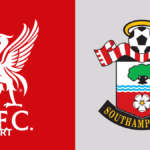Apologizes After “Insensitive” Report On Death Of Ex-Liverpool Women’s Manager Matt Beard

The news came like a thunderbolt that shook not only Liverpool but the entire football community. Matt Beard, the respected football manager who once guided Liverpool Women to glory, had passed away, and the circumstances surrounding his death created a storm of conversations, debates, pain, and regret. But the real storm did not come only from the tragedy itself, it came from how the news was reported by one of the most powerful broadcasters in the world—the BBC. The giant of British journalism found itself at the centre of a controversy after publishing a report about Matt Beard’s death that many people described as “insensitive” and “dangerous.”
This story is not just about a man, not just about football, and not just about journalism. It is about life, death, dignity, and responsibility. It is about how one small mistake in words can wound millions, how the press can both heal and hurt, and how one man’s journey, from touching the heights of football success to the depths of personal despair, has left a mark that will not be forgotten.
Matt Beard was not just any coach. For Liverpool fans, his name carried weight. He was the man who, back in 2013 and 2014, helped lift the Liverpool Women’s team to the very top of English football, winning back-to-back Women’s Super League titles. At a time when women’s football was still fighting for recognition, Beard’s leadership gave Liverpool credibility and inspired a new generation of female footballers. His passion was unquestionable, his knowledge of the game respected by many, and his role in growing the women’s side of the sport made him a figure of pride.
But football, like life, is full of ups and downs. After his Liverpool glory years, Beard’s journey took him through different clubs, from West Ham to America, and more recently, Burnley. He had just taken charge of Burnley Women in June, but his stay was short. Only two months later, he resigned. It was a decision many didn’t fully understand at the time, but now, in the light of his tragic passing, some are beginning to connect the dots and see a picture of a man who may have been struggling far more than the world realised.
On September 20, 2025, the football world received the heartbreaking news: Matt Beard had died in Chester. It was later confirmed that he had taken his own life. The shock was enormous. Tributes poured in from players, managers, fans, and clubs across the world. Liverpool Women posted a heartfelt message thanking him for the history he wrote with them. Former players spoke of how he was more than a coach—he was a mentor, a father figure, a believer in women’s football at a time when belief was rare.
But the sadness of his death was quickly complicated by controversy. On September 30, the BBC published a report about the coroner’s hearing into Beard’s death. In that report, the headline and push notifications sent to millions of BBC Sport users contained specific details about how Beard had died. The news did not just mention that he had taken his own life, but also described the method. For many people, this crossed a line.
Why? Because suicide reporting has rules. The Samaritans, one of the most respected mental health organisations in the UK, have clear guidelines: never include the method of suicide in headlines, and avoid including it in detail anywhere in the report. The reason is simple—such details can trigger vulnerable people, and can even lead to copycat actions. The guidelines are not just opinions; they are based on years of research into suicide prevention.
Yet, in this case, the BBC ignored these guidelines. The method was not just in the article but in the headline itself, and worse, it was blasted out in a push notification to 8.5 million BBC Sport accounts. Imagine being a vulnerable person scrolling through your phone, only to suddenly see those words appear on your screen without warning. For many, it was too much. Complaints flooded in immediately.
One of the loudest voices was Becky Taylor-Gill, a freelance sports producer who has worked closely with BBC Sport before. She took to X (formerly Twitter) and described her shock: “Shocked and saddened by the BBC’s reporting around Matt Beard’s death. It cannot be overstated how dangerous, triggering and negligent sending a push notification to people with that information is.” Her words were echoed by countless others who felt the BBC had not just made a mistake, but had betrayed its duty of care.
The pressure on the BBC grew quickly, and by the next day, they issued a statement of apology. The corporation admitted: “It was not appropriate to include specific details of Matt Beard’s tragic death in a recent headline and push notification reporting on the coroner’s court hearing. We sincerely apologise for the distress this may have caused and will ensure that all future coverage of sensitive issues strictly follows best practice and established guidelines.”
The apology was clear, but for many, it was too late. The damage had already been done. Critics pointed out that the BBC has its own editorial policy that specifically states: “References to suicide should be avoided in headlines unless editorially justified.” Yet, in this case, the BBC ignored its own rules. It also ignored the broader conventions of journalism that are supposed to protect vulnerable readers.
The question that remains is: why? Why did the BBC, with its army of editors, producers, and journalists, make such a mistake? Was it a rush for clicks? A failure in the editorial process? Or simply carelessness? These are the questions that Ofcom, the UK’s media regulator, may now be forced to ask, as some have called for a formal investigation.
But while the debate about media responsibility continues, the heart of this story remains with Matt Beard himself—the man, the manager, the human being who touched so many lives. His passing is a reminder of the silent battles people fight behind closed doors. Beard was a winner in football, a leader on the pitch, but even the strongest leaders can suffer in silence.
This is why the way his story is told matters so much. It is not just about journalism—it is about respect. Respect for the dead, respect for the grieving, and respect for those still fighting their own battles with mental health.
As tributes continue to pour in, the football world has united in mourning. Players who worked under Beard recall his passion for detail, his humour in the dressing room, and his constant belief in their abilities. Clubs across the country held moments of silence in his honour. Fans brought flowers and scarves to stadiums, creating small shrines in his memory.
Liverpool supporters in particular have spoken about how Beard gave them unforgettable memories, leading their women’s team to glory at a time when the club desperately needed success. Those titles in 2013 and 2014 were historic, and Beard’s name will forever be linked to that golden period.
Yet, the pain of his loss has also sparked wider conversations about mental health in football. Managers, coaches, and players live under extreme pressure. Results define careers, and the spotlight never switches off. Beard’s death is a tragic reminder that behind the tactics, the titles, and the public smiles, there are human beings carrying heavy burdens.
Perhaps this is the legacy Beard will leave behind—not just trophies, but a louder call for mental health support in football. Already, some commentators are saying his passing must become a turning point. If clubs can spend millions on transfers, they should also spend more on protecting the mental well-being of the people inside the game.
The BBC’s apology, sincere as it may be, cannot undo what has already happened. But maybe it can serve as another lesson—that words have weight, headlines have power, and journalism is not just about information but about humanity. A push notification may only take a second to send, but it can cut deeply.
Matt Beard’s story is still being written—not by him anymore, but by those he left behind. His family, his players, his colleagues, his fans, and yes, even the media, all carry a piece of his legacy now. The hope is that his death will not just be remembered for the controversy that followed, but for the reminder it gives us all: be kinder, be gentler, and never underestimate the silent battles people are fighting.
The football world has lost a champion, and journalism has been handed a warning. The two together paint a picture that will not be forgotten for a long time. Matt Beard’s name will always live in Liverpool’s history, but the way his death was handled will also live as a case study in what journalism must avoid.
The BBC has promised to do better. The football world has promised to remember him. And somewhere, beyond the noise, one man’s story continues to echo—a story of triumph, struggle, and the fragile line between glory and pain.
Matt Beard is gone, but his impact remains, written forever in the hearts of those who knew him and those who cheered for him. And perhaps, through the mistakes made in telling his final chapter, journalism too will learn to protect, respect, and honour the lives it reports on.















